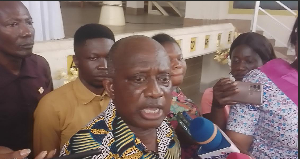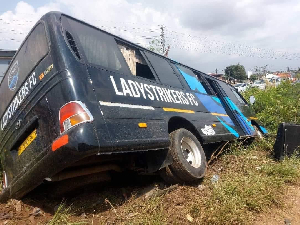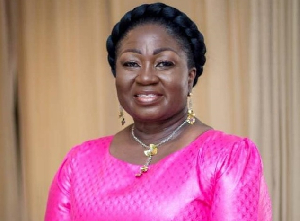There has been growing concerns about the falling standard of education in the country over the last four decades. Our quest to arrest this turn of events has led to the changing of the system of education in the country in no less than 3 occasions. But the problem is even getting worst. Before the 1970s, the standard of education in the country was the envy of the world since it produced eminent individuals who contributed immensely to the cause of both the continent and the world. After independence, our first leaders, as a result of their foresightedness, realized that no country can succeed in developing its people and the economy without laying a very strong and robust educational foundation. Due to this philosophy, the government at that time under the abled leadership of the most revered President on our continent- Dr. Kwame Nkrumah, laid out the necessary infrastructure needed to produce the human resources that have the faculty of making our country a developed one. And it is very sad that after his overthrow in 1966, our motherland has lacked such an iconic leader. A country without a solid educational foundation can never see the light of day in terms of sustainable development. I think it is high time we realized that the backbone of our economy is not agriculture or private sector development as some people would want us believe, but education. Have we ever asked ourselves why we are still living in poverty and always shamelessly asking for alms even in the midst of plenty? We have everything in Ghana, but efficient education. With the right education system in place, only the sky would be our limit.
As a result of the dwindling fortunes of the standard of education in the country, concerned people and various stakeholders in the country have weighed in to produce ideas about how we can overcome this misfortune that has befallen us for quite a long time now. Due to the egregious nature of the situation, Mr. Opoku- a senior lecturer at the University of Ghana once bemoaned that we are producing “illiterate graduates” in the country (www.peacefmonline.com, 2007). That is why we must act, but sensibly and fast. Although opinions have varied, I believe that in the midst of variations come solutions if our discourses are not marred by political considerations, but have the collective good of the people as its design.
For me the most interesting scenario about how to fix our broken educational system is the political tussle going on between the ruling government and the erstwhile government about how to fix the problem. Whilst supporters of the new educational system introduced by the former administration argue that as a result of the fallen standard of education in the country which could be attributed to certain constraints and impediments that have become endemic, there was the need to opt for the new reforms, the critics on the other hand hold the view that the newest reforms is superfluous and that we have to revert to the old system. They argue that instead of increasing the duration of schooling, especially at the senior high school level, there is the need to address the issue holistically- addressing the stymies that have contributed to the declining standard of education. Looking at both these arguments it appears these two antagonists have acquiesced on the fundamental issues- the inherent challenges that have confronted the system over the years, but do not agree over the duration of schooling at the senior high school level.
And that is the reason why for my money the organization of fora, symposia, seminars, etc., to look into the efficacy and efficiency of the new system with the ultimate design of abrogating it is a red herring. If the 4 years at the senior high level were to be diminished to 3 years, we revert to the previous system. The difference of a year should not lead to the splitting of hairs. We can diminish the duration at the senior high level from 4 to 3 years, but if we do not address the real problems, which have succeeded in sending our educational system to its knees, we are going to come back to square one. And strangely our politicians pretend as if they are oblivious of the reasons that have led to the quasi destruction of our hitherto cherished educational system. For me, the hindrances and challenges are so glaring that any serious government should not waste our scarce resources in the organization of programs to see into the merits or demerits of the current system. The problem is not the system, but rather our attitude to education in the country. It is not about the structure or form, instead the resources that we put into it. If you would permit me, I would like to highlight some of the challenges which are so blatant that we cannot play the ostrich.
First of all is the unattractiveness of the teaching profession- It is an undeniable fact that the remuneration of teachers around the globe is meager as juxtaposed with other professions, but on our continent it is so egregious. We always hide behind the axiom “the reward of teachers is in heaven” to deny them what they rightfully deserve. And the worst affected are the trained teachers who accept postings to the hinterlands. They live on the same salary as their colleagues who were lucky to have been stationed in the cities and towns. But they are disadvantaged because they live in environments where there are lack of social amenities and the opportunities to access information that can enhance their lives. These teachers who are disgruntled either quit and join seemingly better professions or leave the country to seek greener pastures abroad. And our politicians know this for real.
Second is the exclusion of the rural folks- Why do most teachers always decline postings to rural communities? I am very proud that together with most of my mates from Wesley College (Wesco- 1995) we accepted postings to some of the most deprived communities in the country. But where are we now? Most of us have either quit the job, especially at the basic level which is very crucial in terms of enduring development in the pupils or teaching in the cities and towns where at least apart from our regular incomes can also do additional things to supplement our income. After all, in this day and age only few people live on a single job if they want to even eke out an average living for themselves. If our governments and policy makers think about the educational success of these unlucky brothers and sisters of ours who live in the remote parts of the country, what prevent them from putting in measures that would let teachers stay for at least a few years. The potentials of majority of these pupils are in most cases buried and we are bickering about the structure of education. How many of our rural folks contribute to the development- education, economic, sports, political, etc. etc. of our country? Yet there are abundant talents and potentials there!! So implicitly these people are left behind.
Third is the focus of teaching and learning- The epicenter of our teaching and learning have been over the years focused on rote learning- “baba” instead of role learning, creativity, and innovation. Mostly, the Ghanaian student learns not to understand the process and underlying principles that they are taught, but rather the end product- the good grades that they want, which is not bad. But if we are able to figure out the fundamentals of the knowledge we are seeking, it helps us to be creative and innovative. What have we achieved with all our As, first classes, second class uppers, inter alia? Certainly not much, I guess.
Finally, are the problems of examination malpractices, lack of supervision, computer illiteracy, information technology deficiency, and countless more. It therefore stands to reason that the dismal performance of our students could not lie in the system of education we are practicing, but rather our lackadaisical attitude towards addressing the challenges that have contributed to the educational mess we have been witnessing in the country for about half a century now.
When the hitches explained above are dealt with appropriately, we would be reaping the benefits of a sound and efficient educational system. What we are doing at present- soliciting views and ideas in order for us to change the current system which has been in operation for barely a year, amount to putting the cart before the horse. The solutions we are seeking are not found on the moon; they are with us. Be on the lookout for some of the recommendations that might help in ameliorating the standard of education in the country that has taken a nose dive for a long time now in my next write up, God willing. God bless Ghana!!
Source: Kingsley Nyarko, PhD, Educational Consultant, IAF- Munich (kingpong73@yahoo.com)
Opinions of Monday, 15 June 2009
Columnist: Nyarko, Kingsley


















